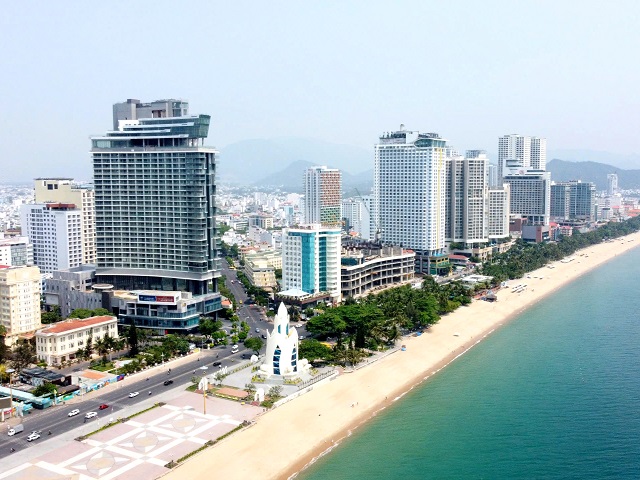Hyatt is an American hotel group that currently owns approximately 30 brands, including well-known names such as Park Hyatt, Hyatt Regency, Grand Hyatt, and Andaz.
Hyatt Regency Nha Trang “on hold” for 7 years
|
Hyatt Regency Nha Trang is part of the A&B Central Square complex, developed by A&B Saigon Nha Trang JSC. The company was established in 2015 with a chartered capital of 200 billion VND by three founding shareholders: A&B Development JSC, Mr. Ha Van An, and Mr. Dang Van Thoai. Mr. An holds the largest stake with 90% of the capital and serves as Chairman of the Board of Directors and legal representative. Prior to officially partnering with Hyatt in 2017, the company increased its capital to 370 billion VND, with Mr. An’s ownership increasing to 94.6%. In 2020, the chartered capital was raised to 630 billion VND. In 2024, there was a change in leadership, with Mr. Le Ngoc Khanh Viet becoming Chairman of the Board of Directors and legal representative, while Mr. An remained as General Director. |
The most prominent evidence of Hyatt’s struggles in Vietnam is the Hyatt Regency Nha Trang project. Seven years ago, the American hotel group joined hands with A&B Group to operate a hotel in a prime location on Tran Phu Street in the city of Nha Trang.
The project was expected to become Hyatt’s third property in Vietnam, offering hundreds of luxurious guest rooms, most of which would boast stunning sea views. However, after many years, the Hyatt Regency Nha Trang website still displays a “Coming Soon” notice.
According to an inspection report dated January 17, 2025, from the Khanh Hoa Provincial Department of Construction, this project is among a list of constructions that have been handled for being in use without completion acceptance. The project has been administratively fined, but as of now, the violations have not been rectified, and there is no written acceptance from the competent authority.
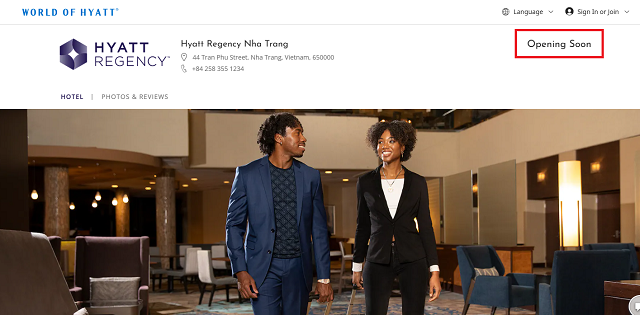
Hyatt Regency Nha Trang displays a “Coming Soon” notice on its website. Source: Hyatt
|
|
|
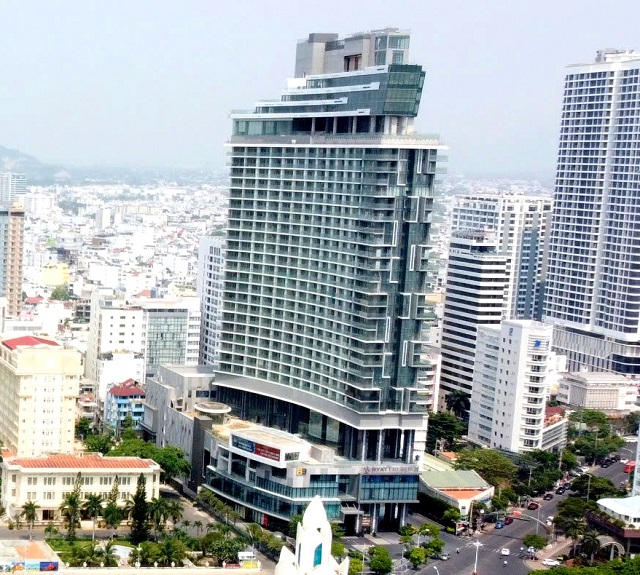
The building at 44 Tran Phu Street, facing the sea, still bears the sign “Hyatt Regency”. Photo: TN
|
Hanoi and Phu Quoc also faced setbacks
Hyatt first entered Vietnam in 2005 with Park Hyatt Saigon, one of the most strategically located hotels in Ho Chi Minh City, and later with Hyatt Regency Da Nang Resort & Spa in 2011. Surprisingly, in the following decade, this number remained unchanged, despite the group’s continuous expansion plans.
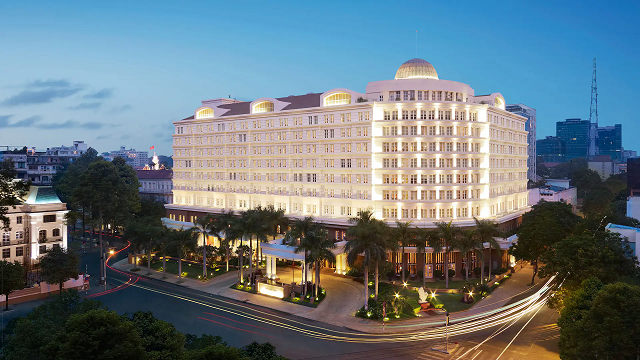
Park Hyatt Saigon in District 1, Ho Chi Minh City
|
In addition to the challenges with Hyatt Regency Nha Trang, the company has also experienced several other unsuccessful collaborations. In 2018, Hyatt announced a partnership with A&B Group for Nam Nghi Phu Quoc Resort to join The Unbound Collection by Hyatt.
However, shortly after the opening announcement, in 2019, the resort’s Fanpage changed its name, removing the part “in The Unbound Collection by Hyatt”. The project is also no longer listed among Hyatt’s future developments, indicating a likely breakdown in this collaborative relationship.
One of the most notable failures was the case of Hyatt Regency West Hanoi. In 2020, Hyatt inaugurated its first hotel in the capital city of Vietnam, featuring hundreds of modern rooms and a prime location rivaling that of Park Hyatt Saigon. Nonetheless, the property changed its name last year and is now known as Sheraton Hanoi West, one of Marriott’s renowned brands.
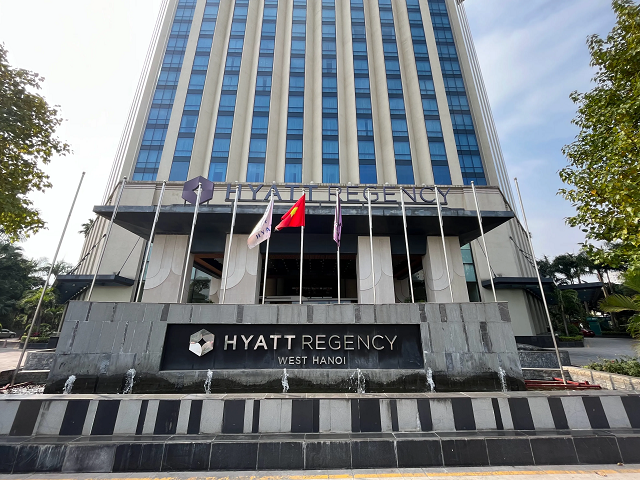
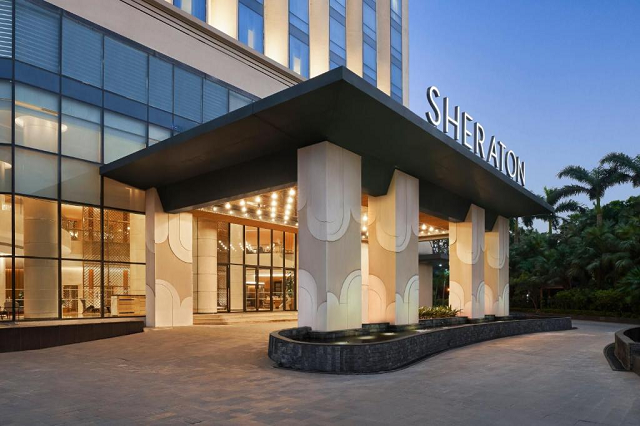 Hyatt Regency West Hanoi is now Sheraton Hanoi West, located at the intersection of Le Duc Tho and Tran Huu Duc streets, Nam Tu Liem district, Hanoi
|
Strategic shift: Selling assets to boost growth
Hyatt’s history dates back to 1957 when Jay Pritzker purchased the Hyatt House motel near Los Angeles International Airport before opening the first Hyatt Regency in Atlanta in 1967. In 1969, the group expanded internationally with the Hyatt Regency Hong Kong.
Despite its long history, Hyatt only went public in 2009 and has since grown through acquisitions of various brands, such as The Unbound Collection by Hyatt (2016), Miraval Group (2017), Alila, Caption by Hyatt, and its current bid for Playa Hotels & Resorts N.V. Playa owns and operates resorts in Mexico, the Dominican Republic, and Jamaica.
Although Hyatt’s performance in Vietnam has not been promising, the group has recorded impressive financial results. In 2024, Hyatt achieved a record-high net profit of nearly $1.3 billion, sextupling the figure from the previous year, largely attributed to real estate sales.
Hyatt is accelerating its transition to an “asset-light” model, following the trend set by competitors like Marriott, IHG, and Accor. Instead of direct hotel ownership, they focus on management and franchise agreements.
Additionally, the nearly $1.1 billion in fees generated from hotel operations, franchising, and other sources, along with 54 million members acquired in the past year, represent new milestones for Hyatt since its inception almost 70 years ago.
As of the end of 2024, Hyatt operates over 1,400 hotels with more than 347,000 rooms worldwide, predominantly in the US. Moreover, the group has a promising future ahead, with approximately 720 hotels and 138,000 rooms in the pipeline.
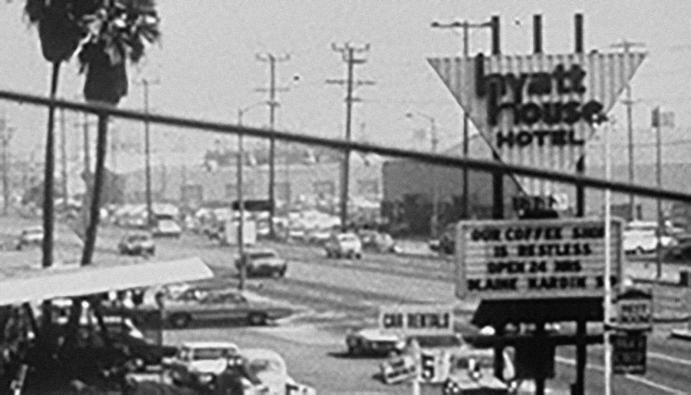
Hyatt was founded in 1957 when entrepreneur Jay Pritzker purchased the Hyatt House motel near Los Angeles International Airport, USA. Source: Hyatt
|
Quang Ninh and Hai Phong lead Hyatt’s expansion strategy
Despite the challenges faced over the past two decades, Hyatt remains optimistic about the potential of the Vietnamese market, especially after shifting its business strategy.
The American hotel brand boasts an ambitious project portfolio, with a current focus on the northern region, particularly Quang Ninh and Hai Phong.
In Quang Ninh, Hyatt plans to develop three projects in the Ha Long Bay and Quang Hanh areas. Similarly, Hai Phong will welcome three different Hyatt brands, including two projects on Cat Ba Island. Additionally, Hyatt intends to expand its presence in other provinces such as Binh Dinh, Khanh Hoa, Kien Giang, and Lao Cai.
Notably, Hyatt Regency Nha Trang remains on the agenda, while Park Hyatt Phu Quoc is the only project in Kien Giang.
If successful, Hyatt could increase its number of hotels in Vietnam from two to seventeen in the coming years. However, the question remains whether the group can overcome the legal and operational hurdles that have impeded its progress in the past.
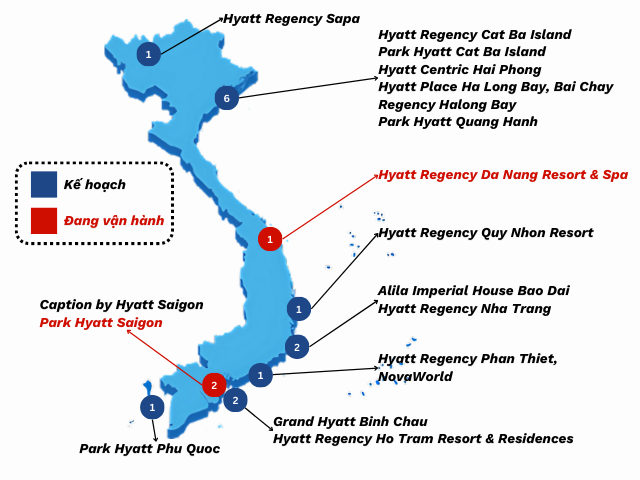 Hyatt aims to open at least 15 hotels in Vietnam in the near future. Source: Compiled by the author
|
Marriott’s Performance and Expansion Plans in Vietnam: A Comprehensive Overview (Part 1)
Marriott’s Performance and Expansion Plans in Vietnam: A Comprehensive Overview (Part 2)
InterContinental’s Performance and Vietnam Expansion Plans: A Comprehensive Analysis
– 13:00 20/03/2025

